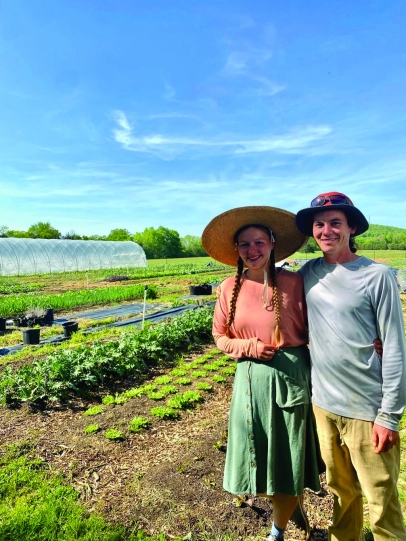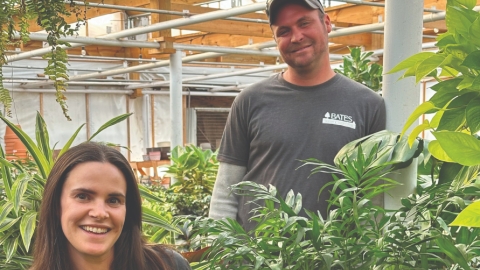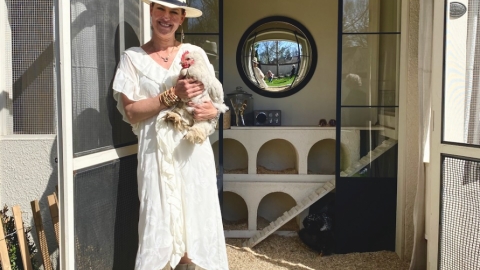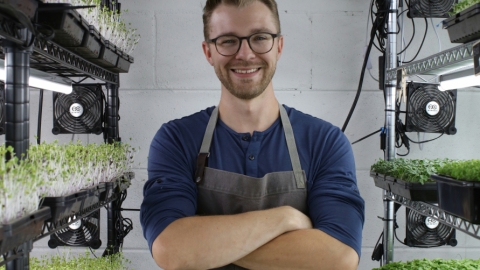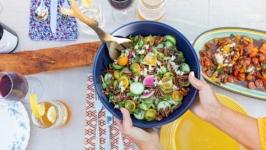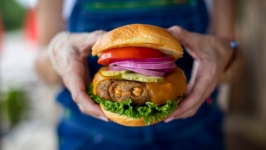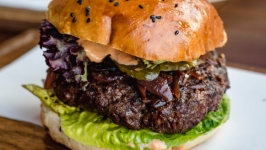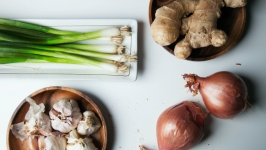Belle Fleur Farm Is Giving a New Meaning to Sustainability
Believe it or not, we were just in the field digging up carrots this afternoon! Our kohlrabi is flourishing, the lettuce is alive and well, and the turnips are so fresh and sweet. What is typically the downtime in our year has turned nearly into a regular growing season...
For those of you who love the Meyer lemon paste, you’ll be happy to know we have received a nice crop of local, chemical- free lemons this year from some excellent growers we know. I have spent many hours in the kitchen lately, packing these beautiful fruits into sanitized jars with pure sea salt where they will bubble gently for a month or so. Shortly afterward they’ll be lovingly deseeded and pureed, and then be ready to make a stellar salad dressing, marinade, hummus, yogurt, sauce, etc!
This was the message I found in my inbox in January from Kelsey and Matthieu of Belle Fleur Farm in Bell Buckle, Tenn.
Kelsey Tucker and Matthieu Legrain were both happily employed when the pandemic hit; Kelsey was a bartender and pastry cook and Matthieu was a farmer at a hemp company. But when both were laid off, they decided to farm.
We had always bonded over our shared passion of simple, homegrown, hyper-seasonal and foraged foods, and [Matthieu’s] grandmother had some land in Bell Buckle, so we decided to try growing some food while we waited to see if the world was ending,” says Kelsey. “The more we grew, the more we sold... when we got a permanent spot at the Murfreesboro farmers market, we knew we were really doing it.”
The duo now sells produce in multiple locations throughout Tennessee, including farmers markets and the Boro’s Five Senses Restaurant & Bar, and have their eyes set on more as they expand their operation. “We feel like we’re contributing to our community in a way that we haven’t felt before,” Kelsey says.
Perhaps one of the most interesting and popular things from Belle Fleur is their larder of preserved, fermented and dried goods. This includes salts, elixirs, extracts, fermented vinegars, preserved fruits and, most recently, cocktail bitters. Kelsey’s time in restaurants and
a diploma from Leah Larabell’s (of High Garden Tea) Plantfolk Herbalism program, combined with the the duo’s commitment to low-waste practices, has them using every last bit of what they forage or grow.
“Matthieu and I both love the idea of creating a seasonal snapshot with local ingredients.”
In particular, their ramp salt has been a hit. Ramps, wild-growing alliums that thrive in spring, have become extremely popular in recent years and have been a source of food for the Indigenous people of Appalachia for thousands of years. The spike in their popularity in restaurants has quickly led to over-harvesting, considering their long (seven years) growth cycle.
“We have access to a couple healthy patches. We harvest no more than one leaf per few mature plants,” explains Kelsey. They then ferment the ramps in salt to preserve their flavor year-round. “A little goes a long way, so a few years ago we started bringing a limited number of jars to our farmers market table and people have absolutely clamored over it.”
For Belle Fleur, the popularity of their ramp salt isn’t just about the sales. They have found that it’s a great way to spark a conversation about sustainability. “I think we are all craving a deeper and more sustainable connection to our food,” Kelsey says.
Want to follow along with Belle Fleur’s journey? Visit their website or follow them on Instagram.


